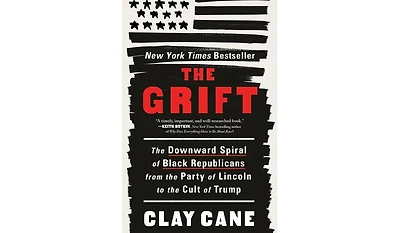Home
Downward Causation and the Neurobiology of Free Will
Barnes and Noble
Loading Inventory...
Downward Causation and the Neurobiology of Free Will in Franklin, TN
Current price: $199.99

Barnes and Noble
Downward Causation and the Neurobiology of Free Will in Franklin, TN
Current price: $199.99
Loading Inventory...
Size: OS
How is free will possible in the light of the physical and chemical underpinnings of brain activity and recent neurobiological experiments? How can the emergence of complexity in hierarchical systems such as the brain, based at the lower levels in physical interactions, lead to something like genuine free will? The nature of our understanding of free will in the light of present-day neuroscience is becoming increasingly important because of remarkable discoveries on the topic being made by neuroscientists at the present time, on the one hand, and its crucial importance for the way we view ourselves as human beings, on the other. A key tool in understanding how free will may arise in this context is the idea of downward causation in complex systems, happening coterminously with bottom up causation, to form an integral whole. Top-down causation is usually neglected, and is therefore emphasized in the other part of the book’s title. The concept is explored in depth, as are the ethical and legal implications of our understanding of free will.
This book arises out of a workshop held in California in April of 2007, which was chaired by Dr. Christof Koch. It was unusual in terms of the breadth of people involved: they included physicists, neuroscientists, psychiatrists, philosophers, and theologians. This enabled the meeting, and hence the resulting book, to attain a rather broader perspective on the issue than is often attained at academic symposia. The book includes contributions by Sarah-Jayne Blakemore, George F. R. Ellis , Christopher D. Frith, Mark Hallett, David Hodgson, Owen D. Jones, Alicia Juarrero, J. A. Scott Kelso, Christof Koch, Hans Küng, Hakwan C. Lau, Dean Mobbs, Nancey Murphy, William Newsome, Timothy O’Connor, Sean A.. Spence, and Evan Thompson.
This book arises out of a workshop held in California in April of 2007, which was chaired by Dr. Christof Koch. It was unusual in terms of the breadth of people involved: they included physicists, neuroscientists, psychiatrists, philosophers, and theologians. This enabled the meeting, and hence the resulting book, to attain a rather broader perspective on the issue than is often attained at academic symposia. The book includes contributions by Sarah-Jayne Blakemore, George F. R. Ellis , Christopher D. Frith, Mark Hallett, David Hodgson, Owen D. Jones, Alicia Juarrero, J. A. Scott Kelso, Christof Koch, Hans Küng, Hakwan C. Lau, Dean Mobbs, Nancey Murphy, William Newsome, Timothy O’Connor, Sean A.. Spence, and Evan Thompson.
How is free will possible in the light of the physical and chemical underpinnings of brain activity and recent neurobiological experiments? How can the emergence of complexity in hierarchical systems such as the brain, based at the lower levels in physical interactions, lead to something like genuine free will? The nature of our understanding of free will in the light of present-day neuroscience is becoming increasingly important because of remarkable discoveries on the topic being made by neuroscientists at the present time, on the one hand, and its crucial importance for the way we view ourselves as human beings, on the other. A key tool in understanding how free will may arise in this context is the idea of downward causation in complex systems, happening coterminously with bottom up causation, to form an integral whole. Top-down causation is usually neglected, and is therefore emphasized in the other part of the book’s title. The concept is explored in depth, as are the ethical and legal implications of our understanding of free will.
This book arises out of a workshop held in California in April of 2007, which was chaired by Dr. Christof Koch. It was unusual in terms of the breadth of people involved: they included physicists, neuroscientists, psychiatrists, philosophers, and theologians. This enabled the meeting, and hence the resulting book, to attain a rather broader perspective on the issue than is often attained at academic symposia. The book includes contributions by Sarah-Jayne Blakemore, George F. R. Ellis , Christopher D. Frith, Mark Hallett, David Hodgson, Owen D. Jones, Alicia Juarrero, J. A. Scott Kelso, Christof Koch, Hans Küng, Hakwan C. Lau, Dean Mobbs, Nancey Murphy, William Newsome, Timothy O’Connor, Sean A.. Spence, and Evan Thompson.
This book arises out of a workshop held in California in April of 2007, which was chaired by Dr. Christof Koch. It was unusual in terms of the breadth of people involved: they included physicists, neuroscientists, psychiatrists, philosophers, and theologians. This enabled the meeting, and hence the resulting book, to attain a rather broader perspective on the issue than is often attained at academic symposia. The book includes contributions by Sarah-Jayne Blakemore, George F. R. Ellis , Christopher D. Frith, Mark Hallett, David Hodgson, Owen D. Jones, Alicia Juarrero, J. A. Scott Kelso, Christof Koch, Hans Küng, Hakwan C. Lau, Dean Mobbs, Nancey Murphy, William Newsome, Timothy O’Connor, Sean A.. Spence, and Evan Thompson.

















